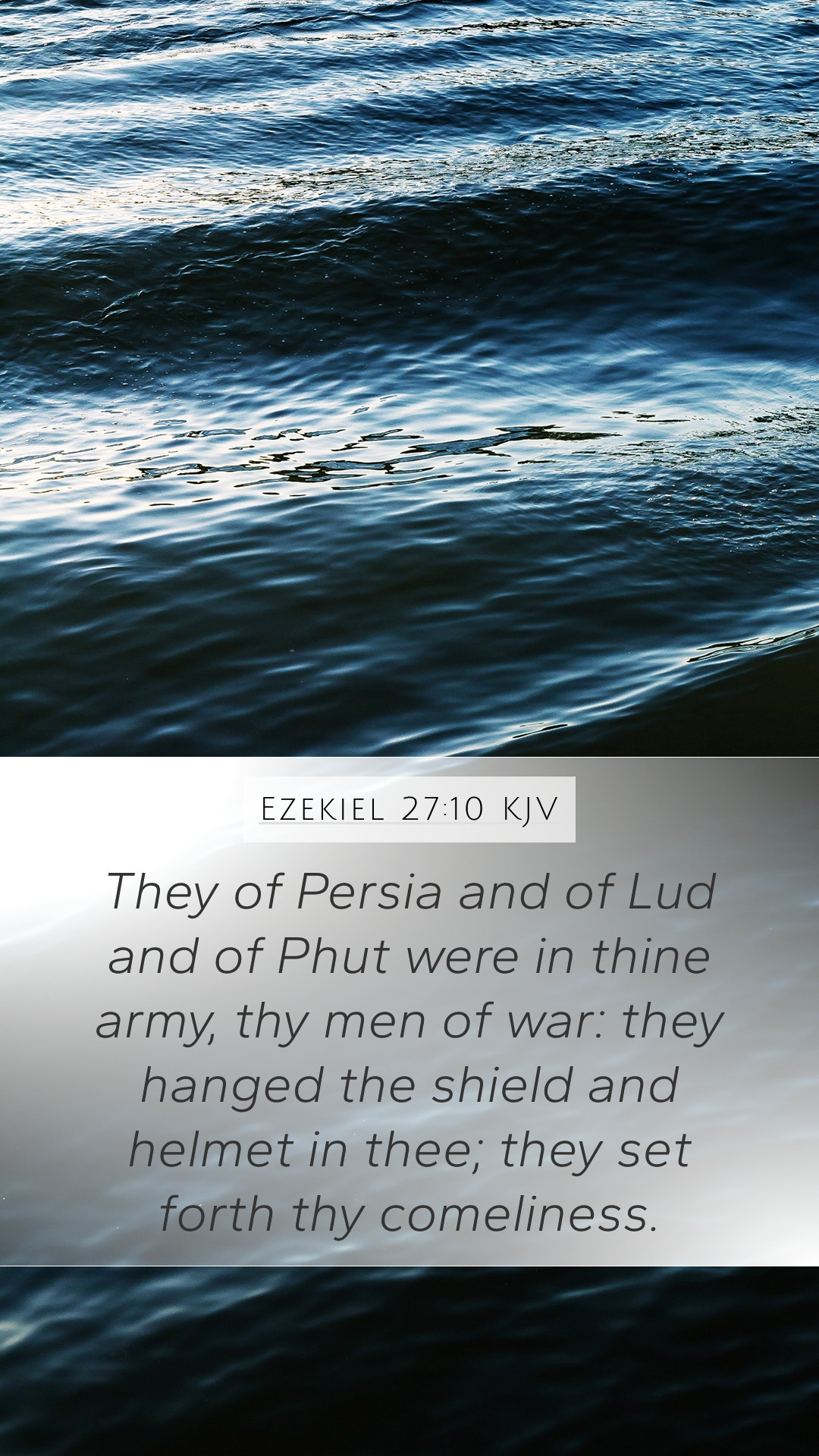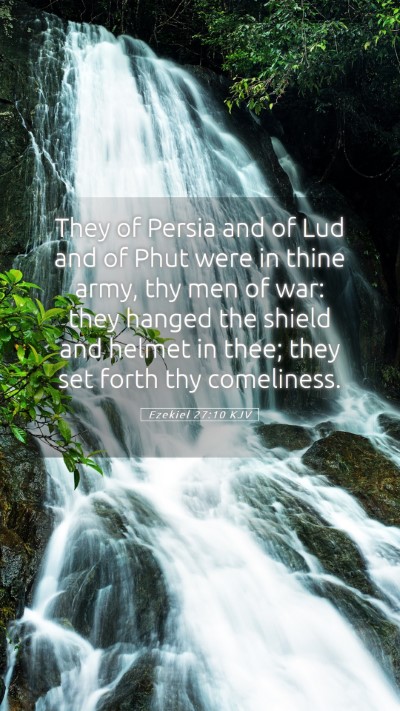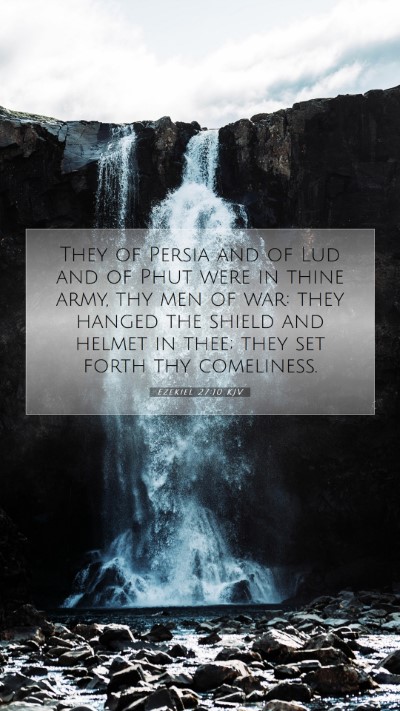Ezekiel 27:10 - Bible Verse Commentary
Bible Verse: Ezekiel 27:10
"They of the house of B'hon made your oars; the ancients of Gebal and the wise men thereof were in you thy caulkers: all the ships of the sea with their mariners were in thee to occupy thy merchandise.”
Bible Verse Meaning
The interpretation of Ezekiel 27:10 is anchored in the larger context of God's judgment against Tyre, a prominent trading city of the ancient world. This verse highlights the collaboration and rich maritime culture that characterized the city’s economy and relationships with surrounding nations.
In the verse, “They of the house of B'hon made your oars” signifies the craftsmanship and expertise involved in shipbuilding, emphasizing the importance of maritime trade to Tyre's prosperity. Matthew Henry notes that the reference to the ancients of Gebal and their skilled labor demonstrates the extensive network of trade and the interdependence of various nations in this commercial hub.
Albert Barnes expands this by illustrating how Tyre was not merely a center for trade but also a melting pot of cultures and skills, where different nations contributed to its wealth. The mention of "wise men" denotes a high level of intellect and ability in seamanship and commerce, crucial for the bustling trade that took place on the Mediterranean Sea.
Adam Clarke adds that this verse’s imagery shows the idea of unity among different nations working towards a common commercial goal, further emphasizing Tyre's significance as a trading partner across geographical boundaries.
Contextual Analysis
The historical backdrop of Ezekiel's prophecy is essential for understanding the implications of verse 10. Tyre was known for its incredible trading prowess, supplying goods to various nations and acting as a bridge between lands. This multifaceted economy is reflected in the detailed craftsmanship of ships and the collaborative efforts of various skilled workers mentioned in the verse.
This description not only captures the physical attributes of Tyre’s capabilities but also serves as a metaphor for its spiritual and moral bankruptcy, which Ezekiel warns against. This duality is often the subject of Biblical exegesis by scholars who look at the broader implications of such interactions among nations and how they relate to divine judgment.
Bible Study Insights
- Meaning of Biblical Commerce: This verse can be used to explore how commerce was viewed in biblical times and its moral implications.
- Understanding Scripture's Historical Context: Since Tyre was a significant part of ancient trade routes, this provides insight into its relevance in biblical prophecy.
- Applying Lessons to Modern Life: The interplay of nations through trade can be viewed as a call for unity and collaboration in contemporary society.
Cross References
- Ezekiel 26:3-5: Prophecy against Tyre and its impending destruction.
- Revelation 18:17-19: The fall of Babylon, paralleling the downfall of Tyre as a commercial empire.
- Isaiah 23:1-2: A lament for Tyre, further emphasizing the city’s role in trade and judgment.
Conclusion
Ezekiel 27:10 serves as a vivid depiction of Tyre's commercial success and international relationships. By understanding this verse through various commentaries, readers can appreciate the intricate design of God’s judgment against such a prosperous city, revealing deeper meanings behind maritime trade and divine accountability.
The insights gained from this verse not only contribute to our bible verse understanding but also encourage further bible study lessons on how historical contexts influence modern interpretations of scripture.


